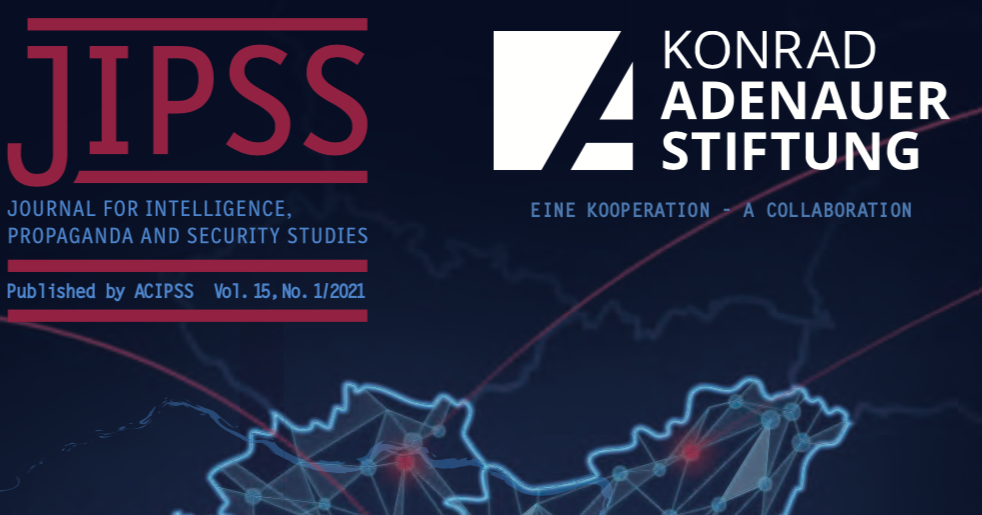BETWEEN AFFLUENCE AND INFLUENCE. EXAMINING THE ROLE OF RUSSIA AND CHINA IN AUSTRIA
ZWISCHEN WOHLSTAND UND EINFLUSS. DIE ROLLE RUSSLANDS UND CHINAS IN ÖSTERREICH
INTRODUCTION
This study is based on an Occasional Paper published with the Royal United Services Institute for Defence and Security Studies (RUSI) in July 2020. It was updated in February 2021 for this issue of JIPSS. It will explore the influence strategies employed by Russia and China in Austria in relation to Austria’s own national interests and foreign policy. Austria has always perceived itself in a special position as a militarily neutral country. Politically, however,
Austria saw itself part of the Western world. Austria’s State Treaty of 1955 also clearly stated that it was to be politically and economically independent of Ger- many.1 It was only after 1989 that Austria – together with other Eastern European states – started moving closer to the European Economic Community, the forerunner of the EU. Austria eventually became an EU member in 1995. This unique history of neutrality had consequences. Given the perception of Austria’s position between East and West, global players saw Austria as a more open country; one that was not
106
clearly defined as belonging to the Western sphere of influence. Vienna was used as a neutral meeting point for foreign leaders,2 and Russia was keen on Austria keeping its neutral status even after the collapse of the Soviet Union.3 This might explain Austria’s closer connection with the Russian leadership in comparison to other European states.
Since the disintegration of the Habsburg Empire in 1918, Austria has always attempted to punch above its weight. Indeed, its neutral status after 1955 has allowed it to partially succeed in this regard, as the country established itself as an important diplomatic centre. One of the three regional headquarters of the UN was moved to Vienna in 1980. Austria also hosts other international organisations – namely, the Organization for Security and Cooperation in Europe (OSCE) and the International Atomic Energy Agency (IAEA).4 Austria continues to rely on its neutral status today, even if its neutrality has been somewhat compromised by the development of the Foreign and Security Policy of the EU.5 The country continues to oppose plans for a common EU defence and security policy and the development of an EU army. It does, however, take part in the Permanent Structured Cooperation of the EU (PESCO). The European Defence Fond (EDF), a key instrument
for the financing of PESCO-projects, was created during the Austrian presidency in 2018.6 Austria also participates in certain EU missions, such as the newly founded Operation EU NAVFOR MED IRINI in the Mediterranean sea.7
The Allied occupation of Austria after the Second World War turned its capital into a playground for intelligence agencies. The Allied Forces were of- ficially tasked with supervising the denazification process in Austria while overseeing the establishment of democratic Austrian parties.8 Even after Austria gained its independence, these foreign powers used Vienna as a meeting point for their intelligence agen- cies, turning Vienna into a “capital of spies” with 7,000 intelligence agents, some of them Russian.9 In later years of the Cold War, Austria’s welcoming environment towards diplomats and spies made it a desired destination for secret operations from the East and West.10 Up until recently, Austria did not fully comply with regulations for financial transparency in its banking system, which encouraged shady foreign interests and operations.11 As such, Austria became part of the Russian money laundering operation known as the Laundromat scheme.12
Given Austria’s geographical and historical prox- imity to Russia, it is likely to entertain closer relations
JIPSS VOL.15, NR.1/2021
SZYSZKOWITZ, BETWEEN AFFLUENCE AND INFLUENCE. EXAMINING THE ROLE OF RUSSIA AND CHINA IN AUSTRIA
with Russia than with the People’s Republic of China. This is why, in this paper, there will be a greater focus on Russia’s economic and political activity in Austria than China’s. For example, while Russian President Vladimir Putin has visited Austria many times and as recently as 2018, Chinese President Xi Jinping has never held an official state visit to Austria. Only China’s third most senior leader, Li Zhanshu, visited Austria in 2018.



